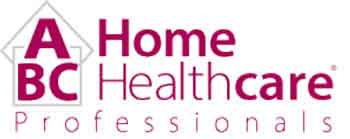Eating Disorders – Awareness, Action and Hope
Eating disorders, including anorexia, bulimia, binge eating disorder, and others, have the second-highest mortality rate of any psychiatric illness. Each year, 10,200 deaths in the U.S. are the direct result of an eating disorder—equating to one life lost every 52 minutes.
Let that sink in – ONE life lost every 52 minutes to an eating disorder.
But, despite those alarming numbers, according to ANAD (National Association of Anorexia Nervosa and Associated Disorders), only 27% receive treatment.
By Definition, eating disorders are illnesses characterized by harmful behaviors or compulsive practices around eating. While clearly serious in nature, the silver lining is that eating disorders are also treatable. Eating disorders are complex, deeply personal struggles that impact the lives of over 70 million people worldwide. They do not discriminate based on age, gender, or background and often go unnoticed until they take a devastating toll on physical and mental health. According to the World Eating Disorder Action Day Movement, early and proper treatment leads to the highest and fastest recovery rates. Now more than ever, awareness, understanding, and action are needed.
The time is now!
The National Eating Disorder Association outlines some signs to look for in individuals who may be struggling with an eating disorder. Keeping in mind, eating disorders do not always present in the same way, making them difficult to recognize. Warning signs can be individual, and some suffering may exhibit only some of these symptoms, or even other symptoms not listed.
Some Emotional and Behavioral Indicators:
- Preoccupation with food, weight loss, calories, and dieting
- Avoiding meals or specific food groups
- Extreme distress about body shape and size
- Rigid, excessive exercise routines
Some Physical Signs:
- Fluctuations in weight
- Constant coldness, digestive issues, or fatigue
- Hair thinning, brittle nails, dry skin
- Muscle weakness or lanugo (fine hair growth on the body)
Eating disorders stem from a variety of factors, including biological, psychological, and social influences. Some possible causes include:
- Genetics: Having a close family member with an eating disorder increases the likelihood of developing one.
- Body Image Ideals: Societal pressures and unrealistic body standards can lead to disordered eating behaviors.
- Weight Stigma: Shame, bullying, and social stigma related to body size contribute to eating disorders.
- Poor Coping Skills: A lack of healthy coping mechanisms can result in harmful food-related behaviors.
- Limited Peer Support: Isolation and loneliness can exacerbate eating disorder symptoms.
- Anxiety or Depression: Individuals with major depressive disorders or anxiety disorders are more likely to develop eating disorders.
- Learn more
Stigma and shame often prevent people from seeking help. But recovery is possible, and support is available. If you or someone you know is struggling, reaching out is the first step.
The time to understand, support, and advocate is now. Take the initiative to learn about eating disorders, share accurate information, and stand against stigma. The more we educate ourselves and others, the greater impact we can have in reducing harm and increasing support for those in need.
The time to extend kindness—to yourself and others—is now. Self-compassion is an essential part of recovery. Whether you are struggling personally or supporting someone else, remember that kindness, patience, and encouragement go a long way in the healing process.
The time to make a difference is now. Whether through volunteering, donating, advocating for better treatment options, or simply offering a listening ear, every action counts. By working together as a community, we can create a world where those affected by eating disorders receive the help and understanding they deserve.
Helpline Resources:
- ANAD Helpline: 1 (888) 375-7767 (Monday-Friday, 9 AM-9 PM CT)
- National Alliance for Eating Disorders Helpline: 1 (866) 662-1235 (Monday-Friday, 9 AM-7 PM ET)
- Diabulimia Helpline: 1 (425) 985-3635

